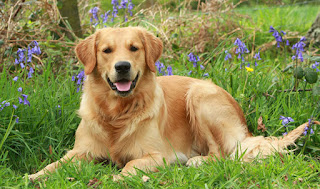1.Border Collie
- Personality: Remarkably smart workaholics; not averse to a good cuddle.
- Energy Level: The uncanny intelligence, athleticism, and trainability of Border Collies have a perfect outlet in agility work.
- Good with Children: Better with Older Children
- Good with other Dogs: Yes
- Shedding: Seasonal
- Grooming: Weekly
- Trainability: Eager To Please
- Height: 19-22 inches (male), 18-21 inches (female)
- Weight: 30-45 pounds (male), 27-42 pounds (female)
- Life Expectancy: 10-17 years
- Barking Level: Barks When Necessary
2.Poodle
- Personality: Proud, active and very smart.
- Energy Level: Very Active; Poodles are enthusiastic walkers, runners, and swimmers. They're eager for all kinds of activity, and they enjoy keeping busy.
- Good with Children: Yes
- Good with other Dogs: With Supervision
- Shedding: Infrequent, Hypoallergenic
- Grooming: Daily
- Trainability: Eager To Please
- Height: 10 inches & under (toy), 10-15 inches (miniature), over 15 inches (standard)
- Weight: 4-6 pounds (toy), 10-15 pounds (miniature), 60-70 pounds (male standard), 40-50 pounds (female standard)
- Life Expectancy: 10-18 years
- Barking Level: Barks When Necessary
3.German Shepherd Dog
- Personality: Smart, confident, courageous, and steady; a true dog lover's dog
- Energy Level: Very Active; These big guys were born to work; they require regular mental and physical exercise
- Good with Children: Yes
- Good with other Dogs: With Supervision
- Shedding: Frequent
- Grooming: Occasional
- Trainability: Eager To Please
- Height: 24-26 inches (male), 22-24 inches (female)
- Weight: 65-90 pounds (male), 50-70 pounds (female)
- Life Expectancy: 7-10 years
- Barking Level: Barks When Necessary
4.Golden Retriever
Personality: Intelligent, friendly, and devoted.
Energy Level: Very Active; This dog is active and energetic and needs daily exercise.
Good with Children: Yes
Good with other Dogs: Yes
Shedding: Seasonal
Grooming: Occasional
Trainability: Eager To Please
Height: 23-24 inches (male), 21.5-22.5 inches (female)
Weight: 65-75 pounds (male), 55-65 pounds (female)
Life Expectancy: 10-12 years
Barking Level: Barks When Necessary
5.Doberman Pinscher
- Personality: Alert, fearless, loyal, and highly trainable
- Energy Level: Very Active; Dobes are energetic dogs who need regular exercise to keep their magnificent physique
- Good with Children: Yes
- Good with other Dogs: With Supervision
- Shedding: Seasonal
- Grooming: Occasional
- Trainability: Eager To Please
- Height: 26-28 inches (male), 24-26 inches (female)
- Weight: 75-100 pounds (male), 60-90 pounds (female)
- Life Expectancy: 10-12 years
- Barking Level: Barks When Necessary
6.Shetland Sheepdog
- Personality: Bright, playful, and energetic
- Energy Level: Very Active; Shelties enjoy a good run; tap into their herding heritage with tasked-based exercise
- Good with Children: Yes
- Good with other Dogs: Yes
- Shedding: Seasonal
- Grooming: Weekly
- Trainability: Eager To Please
- Height: 13-16 inches
- Weight: 15-25 pounds
- Life Expectancy: 12-14 years
- Barking Level: Likes To Be Vocal
7.Labrador Retriever
Personality: Friendly and outgoing, Labs play well with others
Energy Level: Very Active; Labs are high-spirited and not afraid to show it
Good with Children: Yes
Good with other Dogs: With Supervision
Shedding: Seasonal
Grooming: Occasional
Trainability: Eager To Please
Height: 22.5-24.5 inches (male), 21.5-23.5 inches (female)
Weight: 65-80 pounds (male), 55-70 pounds (female)
Life Expectancy: 10-12 years
Barking Level: Barks When Necessary
8.Papillon
- Personality: Happy, alert, friendly
- Energy Level: Very Active; Curious, quick, and athletic, Paps like exercise and take to training
- Good with Children: Yes
- Good with other Dogs: With Supervision
- Shedding: Seasonal
- Grooming: Occasional
- Trainability: Eager To Please
- Height: 8-11 inches
- Weight: 5-10 pounds
- Life Expectancy: 14-16 years
- Barking Level: Barks When Necessary
9.Bloodhound
- Personality: Sweet, easygoing, friendly to all; intense when working
- Energy Level: Somewhat Active; a much around the house, but relentless and stubborn on the trail
- Good with Children: Better with Supervision
- Good with other Dogs: With Supervision
- Shedding: Frequent
- Grooming: Occasional
- Trainability: Response Well
- Height: 25-27 inches (male), 23-25 inches (female)
- Weight: 90-110 pounds (male), 80-100 pounds (female)
- Life Expectancy: 7-9 years
- Barking Level: Barks When Necessary
10.Rottweiler
- Personality: Reserved with strangers and affectionate and loyal with his family.
- Energy Level: The Rottie needs at least two solid workouts daily; he would really appreciate it if these always included you!
- Good with Children: Better with Supervision
- Good with other Dogs: With Supervision
- Shedding: Seasonal
- Grooming: Occasional
- Trainability: Response Well
- Height: 24-27 inches (male), 22-25 inches (female)
- Weight: 110-130 pounds (male), 77-110 pounds (female)
- Life Expectancy: 8-10 years
- Barking Level: Barks When Necessary











Comments
Post a Comment